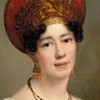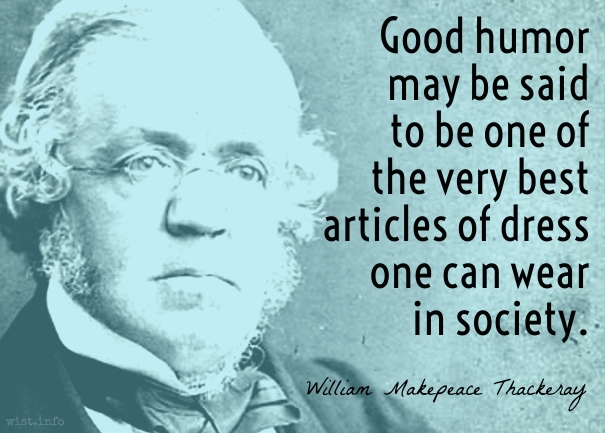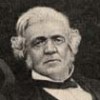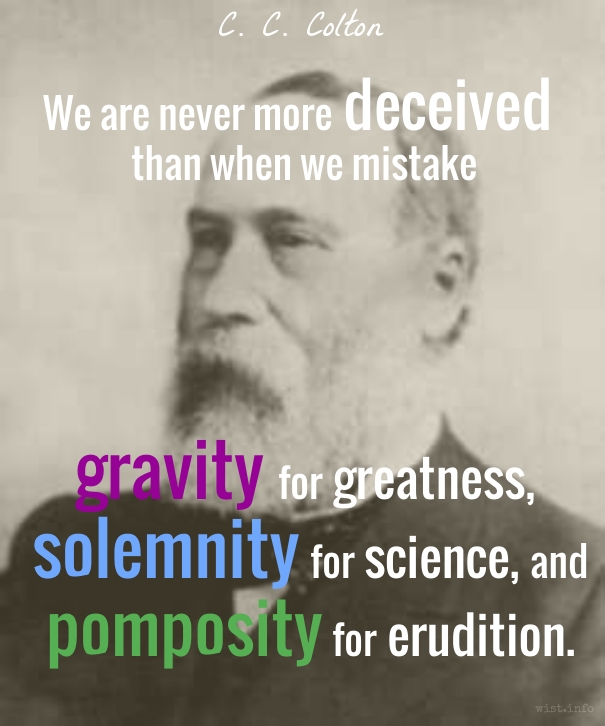Love should be the vestal fire of some mighty temple — some vast dim fane whose organ music is the rolling of the spheres. Affection will burn cheerily when the white flame of love is flickered out. Affection is a fire that can be fed from day to day, and be piled up ever higher as the winter years draw nigh. Old men and women can sit by it with their thin hands clasped, the little children can nestle down in front, the friend and neighbour has his welcome corner by its side, and even shaggy Fido and sleek Titty can toast their noses at the bars.
Let us heap the coals of kindness upon that fire. Throw on your pleasant words, your gentle pressures of the hand, your thoughtful and unselfish deeds. Fan it with good humour, patience, and forbearance. You can let the wind blow and the rain fall unheeded then, for your hearth will be warm and bright, and the faces round it will make sunshine in spite of the clouds without.Jerome K. Jerome (1859-1927) English writer, humorist [Jerome Klapka Jerome]
Idle Thoughts of an Idle Fellow, “On Being in Love” (1886)
(Source)
Quotations about:
good humor
Note not all quotations have been tagged, so Search may find additional quotes on this topic.
What have you to say against laughing? Cannot one be very serious even whilst laughing? Dear Major, laughter keeps us more rational than vexation.
[Was haben Sie denn gegen das Lachen? Kann man denn auch nicht lachend sehr ernsthast sein? Lieber Major, das Lachen erhält uns vernünftiger als der Verdruss.]
Gotthold Lessing (1729-1781) German playwright, philosopher, dramaturg, writer
Minna von Barnhelm, Act 4, sc. 6 [Minna] (1763) [tr. Holroyd/Bell (1888)]
(Source)
(Source (German)). Alternate translation:
What have you to say against laughing? Can we not while laughing be very serious? Laughing keeps us more rational than sadness caused by vexation.
[Source (1884)]
Care to our coffin adds a nail, no doubt;
And every grin, so merry, draws one out.John Wolcot (1738-1819) English satirist (pseud. Peter Pindar)
Expostulatory Odes to a Great Duke and a Little Lord, Ode 15, ll. 5-6 (1789)
(Source)
No man who has once heartily and wholly laughed can be altogether irreclaimably bad.
Thomas Carlyle (1795-1881) Scottish essayist and historian
Sartor Resartus, Book 1, ch. 4 (1831)
(Source)
Cheer up, the worst is yet to come.
Philander Johnson (1866-1939) American journalist, humorist, lyricist, playwright
“The Colyumist’s Confessional,” Everybody’s Magazine (May 1920)
(Source)
He refers to the phrase as a "rather unfeeling invitation to end a hard-luck story."
How easy it is to be amiable in the midst of happiness and success!
Anne Sophie Swetchine (1782-1857) Russian-French author and salonist [Madame Swetchine]
Life and Letters of Madam Swetchine, ch. 5 [8th ed., 1875] (ed. de Falloux; tr. Preston]
(Source)
I have always preferred cheerfulness to mirth. The latter I consider as an act, the former as an habit of mind. Mirth is short and transient, cheerfulness fixed and permanent. Those are often raised into the greatest transports of mirth who are subject to the greatest depressions of melancholy. On the contrary, cheerfulness, though it does not give the mind such an exquisite gladness, prevents us from falling into any depths of sorrow. Mirth is like a flash of lightning, that breaks through a gloom of clouds, and glitters for a moment; cheerfulness keeps up a kind of daylight in the mind, and fills it with a steady and perpetual serenity.
Joseph Addison (1672-1719) English essayist, poet, statesman
The Spectator, #381, “Cheerfulness and Mirth” (17 May 1712)
(Source)
A harmless hilarity and a buoyant cheerfulness are not infrequent concomitants of genius; and we are never more deceived than when we mistake gravity for greatness, solemnity for science, and pomposity for erudition.
Even in common people, conceit has the virtue of making them cheerful; the man who thinks his wife, his baby, his house, his horse, his dog, and himself severally unequalled, is almost sure to be a good-humored person, though liable to be tedious at times.
Oliver Wendell Holmes, Sr. (1809-1894) American poet, essayist, scholar
“The Autocrat of the Breakfast-Table,” Atlantic Monthly (1857-11)
Collected in The Autocrat of the Breakfast-Table, ch. 1 (1858)
A man without mirth is like a waggon without springs, in which one is caused disagreeably to jolt by every pebble over which it runs. A man with mirth is like a chariot with springs, in which one can ride over the roughest road, and scarcely feel anything but a pleasant rocking motion.
Henry Ward Beecher (1813-1887) American clergyman and orator
Royal Truths (1862)
(Source)
Frequently rendered, but unsourced in this form:
A person without a sense of humor is like a wagon without springs. It's jolted by every pebble on the road.
In Proverbs from Plymouth Pulpit, "The Human Mind" [ed. Drysdale (1887)], Beecher is recorded similarly saying:
A practical, matter-of-fact man is like a wagon without springs: every single pebble on the road jolts him; but a man with imagination has springs that break the jar and jolt.
The best doctors in the world are Doctor Diet, Doctor Quiet, and Doctor Merryman.
Always laugh when you can; it is cheap medicine.
George Gordon, Lord Byron (1788-1824) English poet
(Attributed)
Widely attributed to Byron, but no source cited.
Mirth is God’s medicine. Everybody ought to bathe in it. Grim care, moroseness, anxiety — all this rust of life ought to be scoured off by the oil of mirth. It is better than emery. Every man ought to rub himself with it.
















